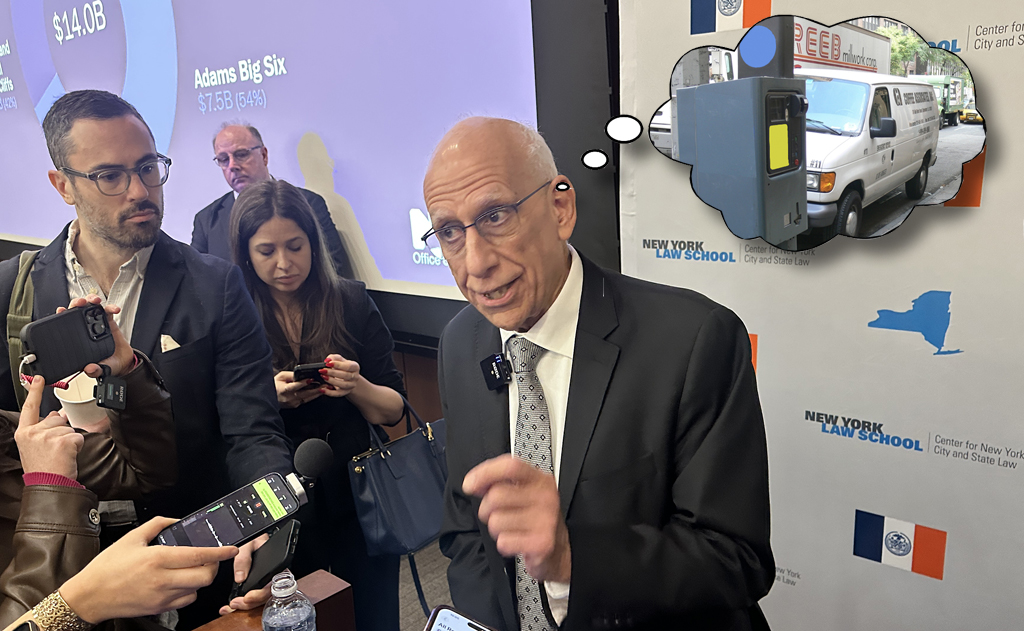“In the coming weeks, House Republicans will formally introduce an energy & infrastructure jobs bill, and hope to move the legislation through the House before the end of the year,” House Speaker John Boehner announced yesterday.
Back in September, the Speaker let slip that the GOP would like to “link the next highway bill to an expansion of American-made energy production.” Turns out, two House Republicans have already put forth proposals to do just that. Both plans pay for infrastructure investment not with user fees like a gas tax, but with revenues from oil drilling.
Yoking transportation funding to fossil fuel extraction presents a horrific feedback loop. Drill for oil to pay for infrastructure to drive more cars to burn more oil -- it's a recipe to entrench oil dependence in transportation policy in a whole new way.
Very few details have emerged so far about Boehner's plan. For example, it's unclear whether House leadership plans to use one of those bills as a guide. Most likely, it will combine the House Transportation Committee’s multiyear transportation reauthorization proposal with some hybrid plan to expand domestic energy production.
This new development is disheartening for anyone who genuinely wants to see a reauthorization pass anytime soon. Congress has been unable to pass one because of polarizing disagreements over funding and complete paralysis when it comes to taking the necessary step of increasing the gas tax. A plan to expand oil drilling, with the Deepwater Horizon disaster still fresh in people's minds, is bound to be even more controversial. With no chance of passing the Senate or being signed by the president, a bill like this will only serve to distract attention from more realistic proposals to reauthorize the surface transportation program. Besides, the logistics will likely be so complex and the revenues will be far enough in the future that even putting politics aside, the proposal is untenable.
AASHTO reacted positively to the news, however, with executive director John Horsley saying, "It's encouraging to hear Speaker Boehner express his support for transportation infrastructure investment and we appreciate his commitment to move a bill through the House in the near future."
With Boehner’s announcement, expanded oil drilling – long a GOP goal – has become a condition for Republican support for adequate funding for the transportation bill. The House-proposed bill had included a one-third cut in funding across the board, which was resoundingly rejected by industry groups, transportation advocates, and Democrats. Several months later, House leadership agreed to raise the funding levels but wouldn’t say where the money would come from. Now we know.
Some observers, including Taxpayers for Common Sense, have noted that a change to paying for infrastructure with oil revenues would represent a fundamental shift away from a “user-pays” system. Of course, our current system isn’t a precise “user-pays” protocol either , but it’s a lot closer than drilling for oil in Alaska and using that money (that won’t come in for years or decades anyway) to build a road in South Carolina.
Jeff Davis of Transportation Weekly also notes that “no public analysis of any previous proposals for additional oil and gas exploration has brought in anywhere near” enough money to pay for a six-year transportation bill at current levels without bankrupting the Highway Trust Fund.
I haven’t done a thorough investigation of oil drilling plans, but ExxonMobil has said that “opening up American resources for development that have been kept off-limits could create 130,000 jobs by 2030, in addition to generating more than $1.7 trillion in government revenue over the duration of the projects.” That’s a lot more than the $75 billion hole in the trust fund, but we’d have to take ExxonMobil’s calculations with about a thousand grains of salt. How long is “the duration of the projects?” How much would it cost in overhead to generate that much revenue? What areas would have to be exploited for oil to bring in all that money?
There are countless questions surrounding Boehner's announcement, and so far, he hasn’t given any details. But if he’s good for his word, we’ll see a concrete plan within a few weeks.
Meanwhile, the Senate EPW Committee is moving forward next week with its two-year bill, which is notably short on oil-drilling. Committee staff have reportedly said the bill text would be available today and reporters have been buzzing around looking for a copy, but none have appeared yet.






